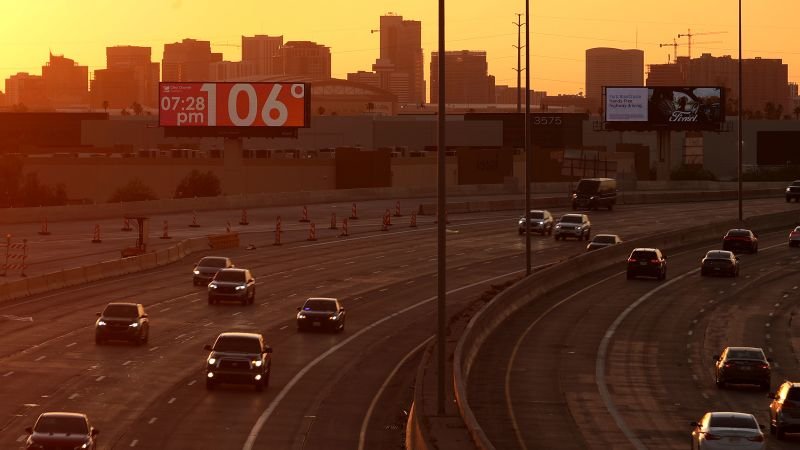Heat-Related Deaths in Maricopa County, Arizona
In Arizona’s Maricopa County, the extreme heat this summer has been devastating, leading to what may be hundreds of deaths. Reports indicate that, so far this year, at least 27 confirmed deaths have been directly attributed to the heat, with an additional 396 deaths suspected to be heat-related.
Last year’s figures reveal that a staggering 645 people died during what was the deadliest summer on record for the region. Notably, nearly half of those fatalities occurred during a particularly harrowing fifteen-day stretch in mid-July.
Jeff Johnston, the Chief Inspector of Maricopa County, has expressed concern over the rising numbers. The recent surge in heat-related deaths was especially prominent between July 7 and July 13 when temperatures soared to a sweltering 118 degrees Fahrenheit. This phenomenon aligns with alarming scientific predictions about global warming, tied to frequent and intense heatwaves spurred by fossil fuel emissions.
Nick Stave, the assistant medical director at Maricopa County Public Health, commented on the situation, noting that, historically, higher temperatures correlate strongly with increases in fever-related illnesses and deaths, especially among vulnerable populations.
This year, Phoenix is experiencing an exceptionally intense summer, with June being hotter than the previous year and July following suit as the month continues to challenge records for heat.
In response, Maricopa County is taking proactive steps to mitigate heat-related fatalities. This includes expanding the number of cooling centers available and extending operational hours to better serve the unsheltered population, who are particularly at risk during these extreme conditions.
Heat is recognized as the leading weather-related killer in the U.S., surpassing the combined fatalities of hurricanes and tornadoes. However, the reporting often falls short; there are many instances where deaths attributed to heat are not recorded accurately. Research has shown significant underreporting of heat-related deaths in populous counties, as many fatalities such as heart attacks may be overlooked as related to extreme temperatures.
Johnston mentioned that efforts are underway to analyze potential sources contributing to last year’s heat-related fatalities, aiming to refine how these tragic events are investigated.
As the summer unfolds, it’s worth noting that Phoenix typically experiences its peak heat in July, and temperatures are unlikely to drop below 100 degrees until mid-September. This suggests that the coming weeks could be even more perilous, with suspicions that heat-related deaths will continue to rise.







